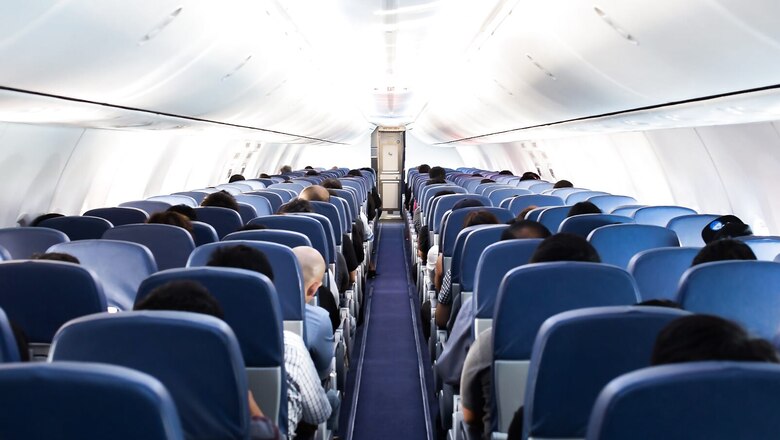
views
India’s civil aviation regulator announced it will institute random drug testing on flight crews and air traffic controllers, effective from January 31, 2022. The Directorate General of Civil Aviation (DGCA) on Monday said that provisions of the ‘Civil Aviation Requirements’ rules are applicable on aircraft operators, MROs, FTOs, and air navigation service providers.
The CAR requires random testing to trace the presence of psychoactive substances such as amphetamine and amphetamine type stimulants, opiates and metabolites, cannabis (marijuana) as ‘THC’, cocaine, barbiturates, and benzodiazepine.
“All scheduled commercial aircraft operators and air navigation service provider shall carry out random drug testing for the consumption of psychoactive substance by flight crew members and air traffic controllers employed by them respectively at the facilities established by them using the services of an appropriate laboratory.”
“The medical personnel of the concerned organization shall associate during this process. The programme shall ensure that at least 10 per cent of the employees of an organisation are covered in a year.”
Besides, the DGCA said that these organisations shall ensure testing before employing a person, before admitting a trainee pilot in a FTO, follow-up testing of confirmed cases, and at first available opportunity, in case an aviation personnel has refused drug test to a foreign regulator during flight operation to that country.
“Organisations should encourage their employees for self-declaration regarding use of psychoactive substance. Such employees shall be subjected to rehabilitation process by the organisation before return to the active duty.”
“Number of such cases shall be reported to DGCA on a six months basis.”
Furthermore, organisations have been asked to educate their employees about the prescription drugs that contain such substances.
In addition, the CAR mentions that these tests shall be carried out “post flight or post shift or anytime during the duty period as the case may be. It shall not be carried out, while an employee is on leave or on rest period”.
“The pre-flight testing requirement will be introduced in due course, all the applicable organization are required to build capacity or infrastructure for the same.”
In terms of penalties, the CAR mentioned that if screening test is non-negative, the employee shall be immediately removed from the safety sensitive duty till a confirmatory report is received.
“In case of positive confirmatory test for the first time, the concerned employee shall be referred by the organisation to a ‘specialist doctor or counsellor or de-addiction’ centre for de-addiction or rehabilitation programme as applicable, in consultation with the MRO.”
“Such an employee shall return to active duties after again having undergone the tests for the consumption of the psychoactive substance with a negative test report. In addition fitness certificate by the medical in charge of the concerned organisation shall be required.”
In case, an employee who has returned to safety sensitive duties after having been tested positive and is again found positive in the confirmatory test (second occasion), then the license of such person shall be suspended for period of three years and for third positive occasion, the license shall be cancelled.
Read all the Latest News , Breaking News and Ukraine-Russia War Live Updates here.
















Comments
0 comment